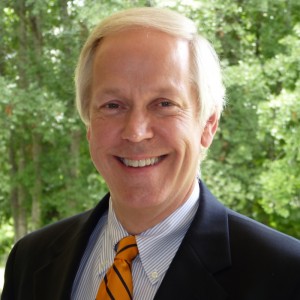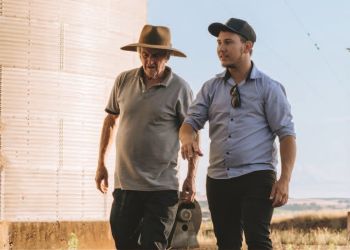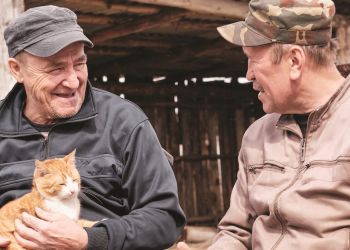
Reena Chudgar, MPH, is Director of Innovation at the Public Health National Center for Innovations (PHNCI). Reena joined PHNCI in April 2019 with more than 13 years of experience in public health. Prior to joining PHNCI, Reena served as Director for Performance Improvement at the National Association of County and City Health Officials (NACCHO). During her time at NACCHO, she provided support to local health departments (LHDs) and their public health system partners in community health assessments and community health improvement plans, quality improvement/performance management, strategic planning, and helped LHDs prepare for national accreditation.
Additionally, Reena provided strategic direction and management for the Performance Improvement Portfolio. Prior to joining NACCHO, Reena worked with the Millennium Water Alliance at CARE USA, interned with the DeKalb County Board of Health in Georgia, and conducted research in Ghana, all of which focused on water, sanitation, and hygiene initiatives. Earlier, Reena served as a Health and Community Development Peace Corps volunteer in the Republic of Kiribati, where she designed and implemented several grassroots health and education programs, assessed and prioritized community needs, and strengthened local economic and social capacity. Reena received a Master of Public Health degree and a bachelor’s degree in chemistry from Emory University.
Below, she discusses her leadership role at PHNCI and shares advice on how an organization can develop innovative ideas and successfully implement them.
Can you tell us about PHNCI and your role as Director of Innovations?
At PHNCI, we are exploring and spreading innovations within governmental public health and with the partners and communities they work, to tackle some of the complex, systems issues that communities face today, to ultimately support efforts towards achieving optimal health and equity. Being situated at the national level, and as a division of the Public Health Accreditation Board (PHAB) provides a nice vantage point for this—learning about examples and strategies at a variety of levels to inform the national movement and inform the accreditation program. A few ways we are doing this is through design thinking trainings, the Cross-Sector Innovation Initiative—supporting 10 communities in their innovations towards systems alignment—revisiting and refreshing the 10 Essential Public Health Services, supporting systems level changes, and our innovations stories. PHNCI also created a definition of public health innovation, with field input, to guide the field.
In my role, I am to broaden and strengthen PHNCI’s mission by supporting both the day-to-day implementation and the strategy around public health innovation. This occurs through expanding partnerships within and outside of public health organizations, implementing national level initiatives to move the field forward building the practice and evidence base through peer exchange, creating spaces for learning and growing, and more. I’m intrigued and excited by deepening my understanding around what makes interpersonal and community-level partnerships and engagement work, and not work, what it means to build trust, and to try to infuse those elements into my own work culture—both internally and externally. Building relationships is one of the most important aspects of my work, in addition to placing value on different perspectives, and different ways of being, doing and thinking.
How has your previous leadership position as Director for Performance Improvement at NACCHO informed your current work and role as Director at PHNCI?
As Director of the Performance Improvement team, I had the opportunity to strengthen a variety of different skill sets—from both the technical/content perspective and the project management, leadership, and strategy perspective. In this role, I noticed commonalities between building a culture of quality and those agencies that were building a culture of innovation. I had exposure to not just a wide variety of agencies and agency cultures, but of people—different front-line staff, leaders, and more—all with different perspectives, values and styles that help shape how the work occurs. In addition to the external facing work, I was responsible for internal management and leadership, developing and managing budgets, supervising and growing staff, and contributing to organizational leadership and strategy decisions. The wide range of activities and opportunity to grow both my technical and strategic skill set lent itself well to my new role with PHNCI.
What advice would you give to an organization that is interested in developing innovative ideas and successfully implementing them?
As agencies are deliberately thinking about innovation, it’s important to focus on both the organizational culture and people, and the outcomes or products of innovation processes. One does not occur well, and intentionally, without the other. It is not just about creating something new, but creating a culture, and fostering leadership that can support new ideas. Similar to building a culture of quality, innovation isn’t just an additional task added on to the day-to-day work. It requires a shift in the way we approach our work. It’s also important to recognize that innovation does not have to be radical, or disruptive innovation. Small scale innovation and incremental innovation are just as valuable. To build a culture of innovation, agencies should focus on empathy, which is at the heart of innovation. Agencies should take time to listen, understand, be human-centered in solutioning, ask the right questions, and spend time questioning.
For many in public health, this is at the heart of our mission, making connections with people and communities to understand and ultimately co-create meaningful and impactful solutions. Creating a culture where failing forward and risk-taking are the norm is another key ingredient. Failure is inevitable, and by making space for it, learning and improving, staff are more likely to continue taking risks moving forward. Trying out new ideas and prototyping early and often is a key aspect of innovation processes, including using agile approaches versus more traditional, waterfall approaches.
Creativity requires opportunity for staff and leaders to be imaginative in their everyday work—a way to think about what can be versus what has always been, and to shift perspective to open new ways of thinking. Utilizing processes such as design thinking, is a structured way to innovate. These are a few essential ingredients to growing a culture that supports innovation. As communities expanded their innovation cultures, it’s important to share what works and where there are challenges. It’s important to tell the stories of innovation to grow the field, and make connections between individuals, agencies, communities, and systems to tackle some of the complex systems issues our communities are facing today.
Read more about PHNCI at http://www.phnci.org or contact Reena at [email protected].
To share your story of transformational leadership or to recommend a leader to be highlighted, please contact Taylarr Lopez, NACCHO Communications Specialist, at [email protected].









